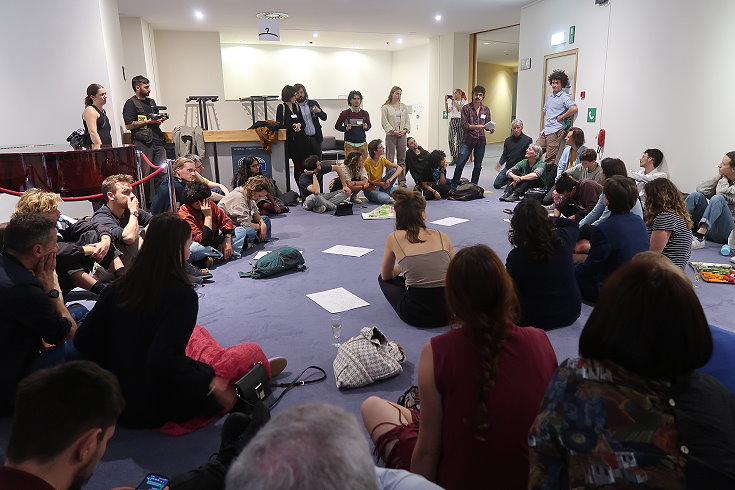Moving forward towards sufficiency and wellbeing
 The ambition of the conference was clearly to go beyond diagnosis and point towards directions for overcoming increasing inequality, the appropriation of untold wealth by the top 1% of the global population that account for the vast majority of climate gas emissions and material consumption, more than the bottom 40%. Hence 'beyond growth' is the goal. Several speakers identified the still growing inequality as a critical driver that affected all the physical, chemical and biological effects that even cushioned Europeans feel in the form of heat waves, the pandemic, water shortages not only in the Mediterranean, distress of economically vulnerable groups. How can it be deemed acceptable that more than USD 260 billion were paid out as dividends, while workers' salaries increased by only 4% in the face of often double digit inflation?
The ambition of the conference was clearly to go beyond diagnosis and point towards directions for overcoming increasing inequality, the appropriation of untold wealth by the top 1% of the global population that account for the vast majority of climate gas emissions and material consumption, more than the bottom 40%. Hence 'beyond growth' is the goal. Several speakers identified the still growing inequality as a critical driver that affected all the physical, chemical and biological effects that even cushioned Europeans feel in the form of heat waves, the pandemic, water shortages not only in the Mediterranean, distress of economically vulnerable groups. How can it be deemed acceptable that more than USD 260 billion were paid out as dividends, while workers' salaries increased by only 4% in the face of often double digit inflation?
So what about structural remedies?
Decolonising international relations in trade and international organisations was a theme illustrated by many speakers to undo deep rooted injustices not only in the Global South, but also affecting socially weak groups in Europe. As speaker after speaker highlighted aspects of how colonial regimes had curtailed the opportunities for people and companies in colonised countries and how these conditions cast large shadows into modern exchange relations upheld by international corporations and many governments. These perpetuated the injustices and cost people's lives as last seen during the covid-19 pandemic.
We also see them on the water: industrial fleets plundering waters of African and Latin American countries or mining firms now pushing hard for deep sea mining to perpetuate overexploitation of materials while already six out of nine planetary boundaries are breached. And marine life suffocating from plastic and other waste discarded into the ocean.
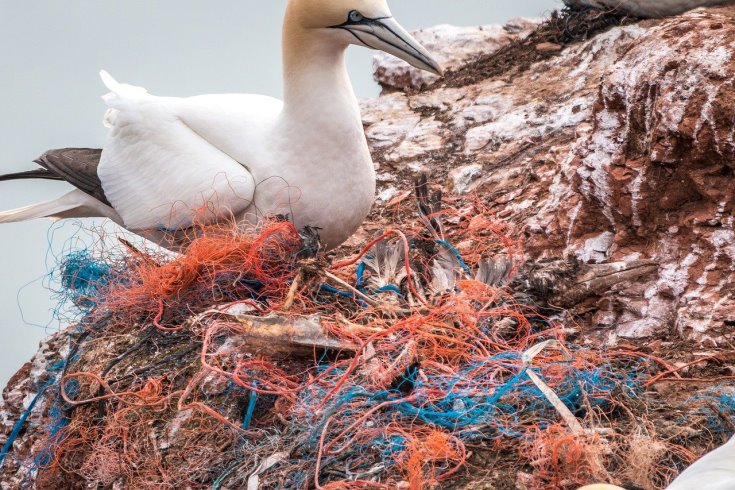
How come the ministers of finance of the G7 have more voting rights in the International Monetary Fund (IMF) than the ministers of finance of countries in the Global South? How come that trade rules with strong export orientation persist to direct these countries economies to satisfy the needs of Europe and other industrialised countries rather than those of their own populations? How come only 12% of products and materials get recycled at the end of their useful lives while the hunt is on for ever more aggressive mining and extraction for the insatiable appetite for energy and materials of industries.
Do we need fast fashion, more and heavier cars, rapid replacement of one electronic device after the next, the run for more exotic materials and rare earths? What we see is that every so-called efficiency gain in newer technology is overcompensated with more, even exorbitant demands on energy and material resources. Let's ask what we really need to be happy and healthy. A rate of 25% of the population with anxiety syndromes and serious mental health problems in Europe and the US is an invitation to pause and rethink how we live now and how we could envisage a better future.
A lot of the research points to the realisation that once basic needs are met, rich social contacts and relations give us health and happiness. Then the question becomes, if we relegate the dictatorship of eternally growing GDP to the past, how can we maintain social services from pensions to health care and education? How can we reduce the useless and polluting part of overconsumption without giving up welfare and give space to economic growth in the Global South to meet basic needs for all there as well?
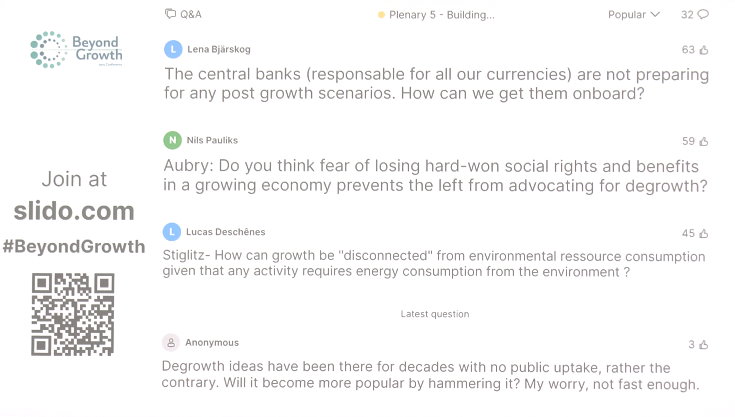
The estimates for the initial investment into this restructuring of the economy were in the order of 520 billion USD per year, someone even mentioned USD 900 billion. That would keep many people out of harm's way and move us back towards production and consumption patterns within planetary boundaries, especially addressing also needed growth to meet unmet basic needs in the Global South while ensuring continuity of social systems in Europe. Research suggests that much of this investment is not appetising for private profit seekers and must therefore be shouldered by public resources.
If we want to respond to the deepest human needs for health and belonging, if we want to move towards a care economy, this is a blue print for livable futures, not a side show for marginalised groups. Tim Jackson, Director for the Understanding of Sustainable Prosperity (CUSP) at the University of Surrey, left no doubt that to win the narrative it was essential to confront the impossibility argument always pulled out to sabotage change. That required a sense of struggle for the future to muster the energy needed to overcome the staying power, the media power and fake news servicing the top 1%.
The programme is available here; the recordings of the seven plenary sessions and 20 parallel focus panels will shortly be available from the EP website. That may help counter the deafening silence in most mass media about the conference.
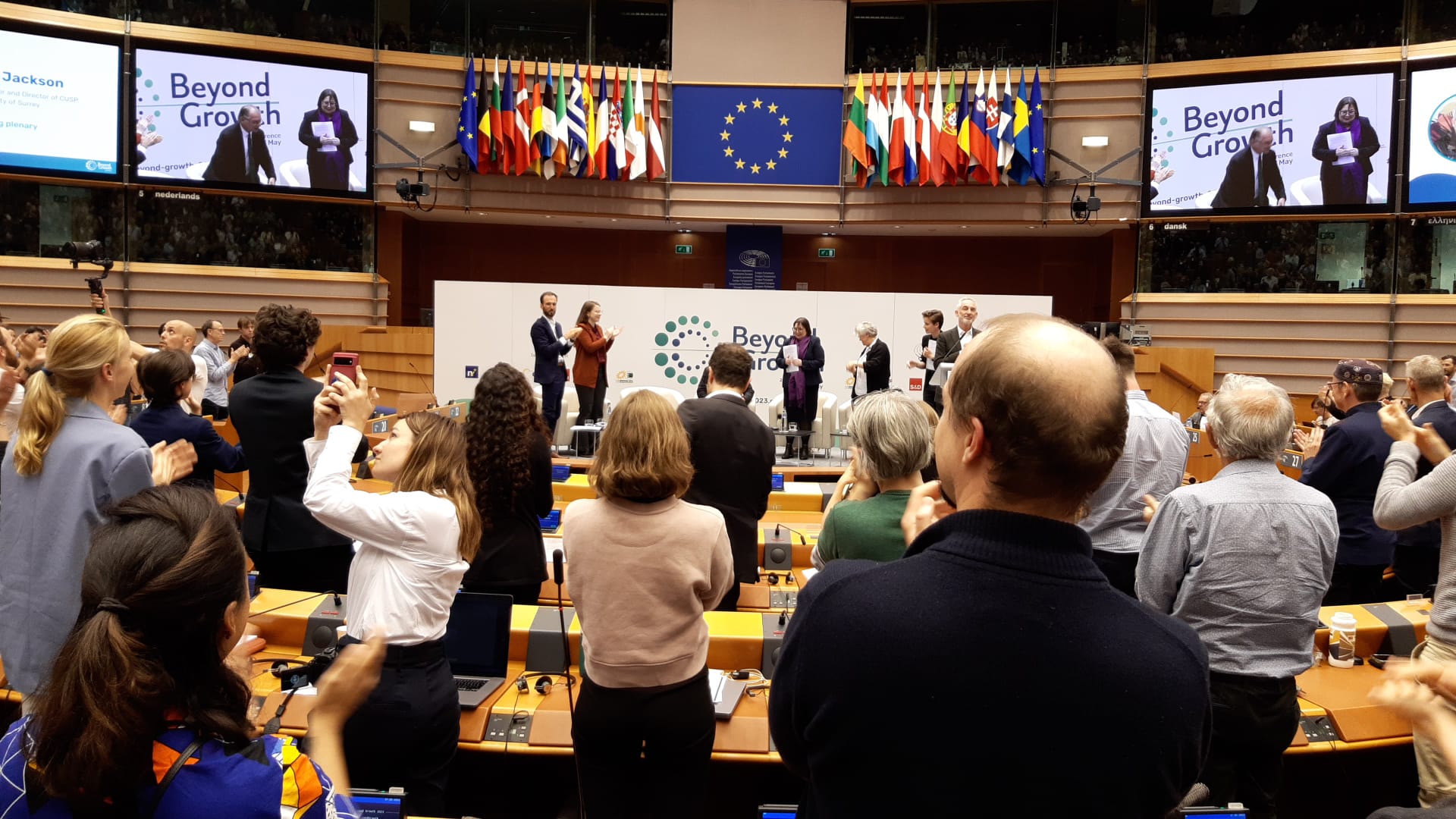
The talks and discussions raised the question, what to do next? Perhaps a conference can not answer that question, but it should inspire lots of roundtables and dialogue fora with as broad a participant range as possible to look what could be done in every city, region and country. Let the different experiences meet, even clash, but let people search to blend the different experiences with what the sciences are telling us to look for solutions. Wisdom of crowds can often help to find ways out when the issues at stake matter to all of us.
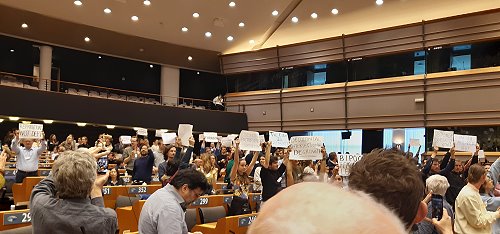
A number of youth groups certainly thought so and raised their hand-made posters with their demands in the closing session. It will not stop there. Organising the drive for restructuring the extractive economy and the institutions sustaining current pathways is a mammuth task requiring good planning, organisation, energy and stamina. The energetic atmosphere at the conference certainly injected some of that and will serve as inspiration for the next practical steps from local to global, across all sectors and stakeholder groups.
Text with conference impressions and pictures by Cornelia E. Nauen unless indicated otherwise.
